Defachang Dumpling Restaurant
Founded in 1936, Defachang is a well-known time-honored brand offering dumpling feasts with strong local flavor in Xi'an, Shaanxi province.
Defachang's dumpling-making technique was recognized as the province's first intangible culturalheritage and entered the GuinnessWorldRecords with 318 forms of dumplings.
The restaurant has become an important channel for Chinese and foreign tourists to taste the unique flavor of Shaanxi and appreciate the history and culture of Xi'an in ancient times.
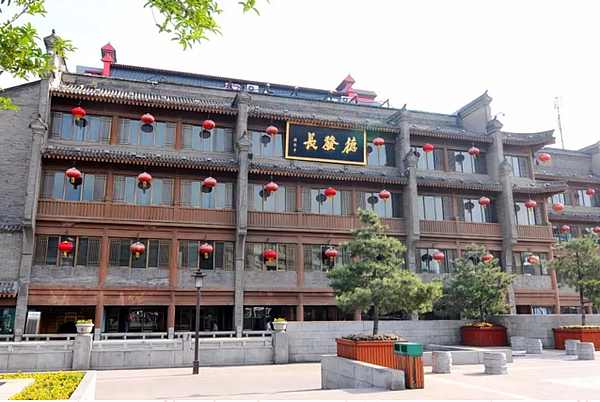
Defachang Dumpling Restaurant [Photos/Xi'an Release]
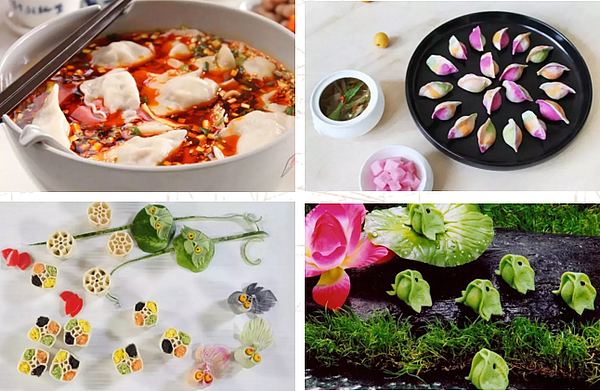
From left to right, top to bottom: Dumplings with sour soup, dumplings colored with vegetable juice, hetang yuese (an assorted dish decorated with frog-shaped dumplings and lotus root snacks), and yuese waming ( frog-shaped dumplings).
Tongshengxiang Restaurant
Founded in 1920, Tongshengxiang Restaurant is renowned at home and abroad for its tasty niuyangrou paomo (pita bread soaked in beef andlambsoup)
In 1983, Tongshengxiang niuyangrou paomo was served at a state banquet; the paomo was granted the Jinding Award, the highest award in the special local food industry in China; in 1997, the restaurant's paomo and mutton patties won the title of noted Chinese snacks by the China Cuisine Association; in June 2008, the cooking technique of Tongshengxiang niuyangrou paomo was recognized as a state-level intangible cultural heritage. The brand is also hailed as No 1 by diners at yangrou paomo restaurants throughout the province.
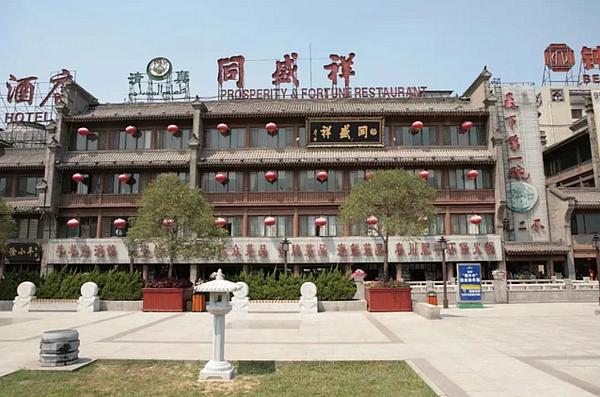
[Photos/Xi'an Release]
Xi'an Roast-duck Restaurant
Founded in 1916, Xi'an Roast-duck Restaurant was the first of its kind in Northwest China and has won more than 30 honorary titles such as China time-honored brand and famous Chinese restaurant.
A Tang Dynasty (618-907) book recorded a story about roast duck in Xi'an, and the restaurant developed an all-Tang poetry-themed roast-duck banquet, with each dish corresponding to a Tang poem. The banquet was recognized as a famous Chinese banquet and won the Jinding Award.
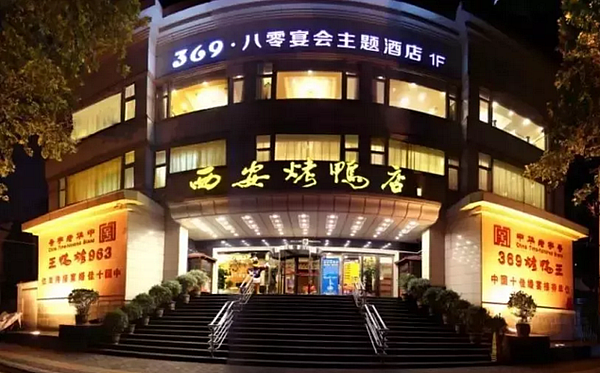
[Photos/Xi'an Release]
Chunfasheng Restaurant
Chunfasheng Restaurant was set up in 1920 and is well known for Shaanxi's local cuisine, such as Hantang yangshengyan (health-preserving feast), yangsheng wuxingcai (a dish said to be good for the lung, heart, liver, kidney and spleen) and hulutou paomo (pita bread soaked in pork intestine andtripesoup).
Hulutou paomo had its roots in the cooked chopped entrails of pigs in the Tang Dynasty 618-907)and became known as a health-preserving diet through Tang pharmaceutical expertSun Simiao.
The dish has pork intestine and porktripe as a base and is stewed with more than 10 condiments and specially cooked pita bread.
The making technique of hulutou paomo was among the province’s first list of intangible cultural heritage.
The cooking of hulutou paomo is extremely exquisite and requires reasonable use of a variety of condiments. The raw materials, pork intestines andtripe are put through more than a dozen processes to eliminate grime, stench, and a surfeit of fat.

[Photos/Xi'an Release]
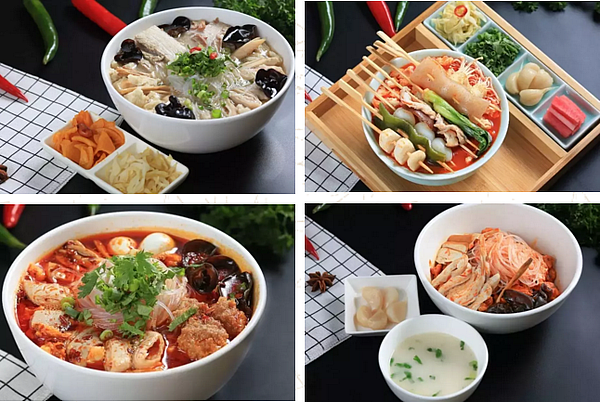
From left to right, top to bottom: hulutou paomo, hulutou paomo with chuanchuan, vegetables and meat skewers served in hot and spicy broth, traditional hulutou paomo and stir-fried hulutou paomo. [Photos/Xi'an Release]
Baiyunzhang Dumpling Restaurant
The restaurant is a Muslim dumpling restaurant founded in 1938. It used to be located at No 364 East Avenue of bustling downtown Xi'an before it moved from Taiyuan as a steamed dumpling seller.
In 1963, the government renovated and expanded the restaurant. A five-floor new Baiyunzhang Dumpling Restaurant was built between 1981 and 1987 on the original site. It offers hand-made dumplings and dumpling feasts.
The dumplings are made of high-quality materials and are good for health. They boast a thinskinof dough, and are full of savory fillings.
Another highlight of the restaurant's dumplings is dumplings with sour soup, which is mellow and fragrant and well received by locals. In 1997, the Baiyunzhang dumpling was recognized as a famous Chinese snack.
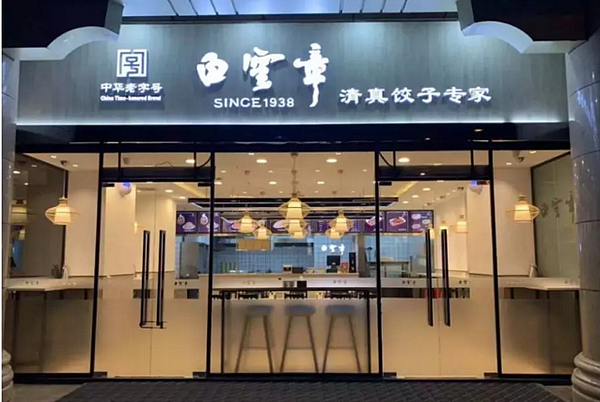
Baiyunzhang Dumpling Restaurant [Photos/Xi'an Release]
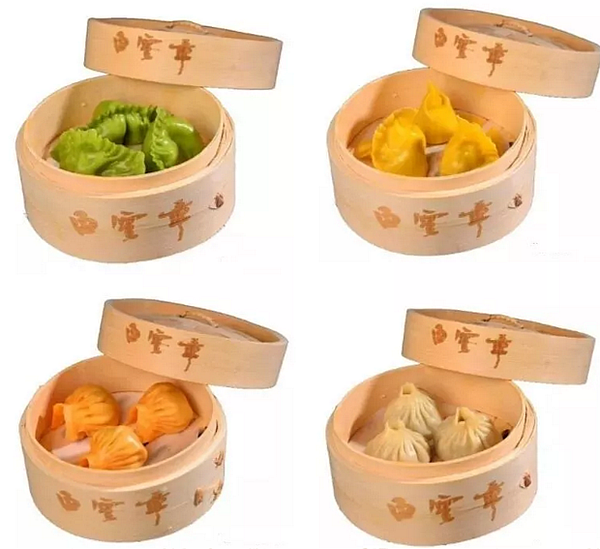
Baiyunzhang dumplings in different shapes and colors [Photos/Xi'an Release]
Jiasan's guantang baozi(soup buns)
Jiasan's guantang baozi is a famous Muslim snack in Xi'an. It was established by Jiasan, or Jia Zhiliang, and offers delicate guantang baozi stuffed with fresh and tender meat and mellow soup.
Recognized as a Chinese time-honored brand of Shaanxi, a famous Chinese restaurant serving high quality Muslim food of China and noted Chinese snacks, the restaurant is hailed as the No 1 guantang baozi in the historical city, the pearl of Xi'an, and the calling card of Xi'an by eager diners.
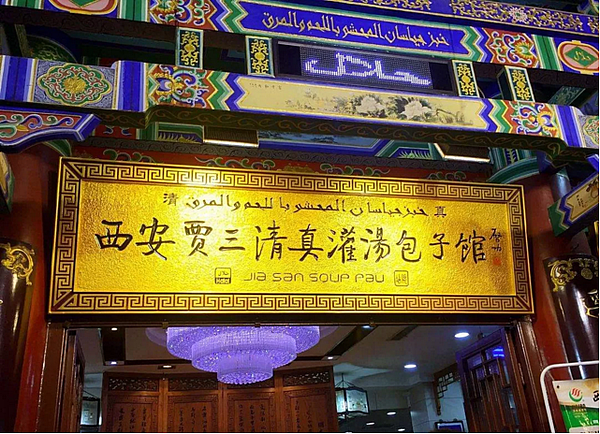
The restaurant is decorated in a Chinesestyle. [Photos/Xi'an Release]
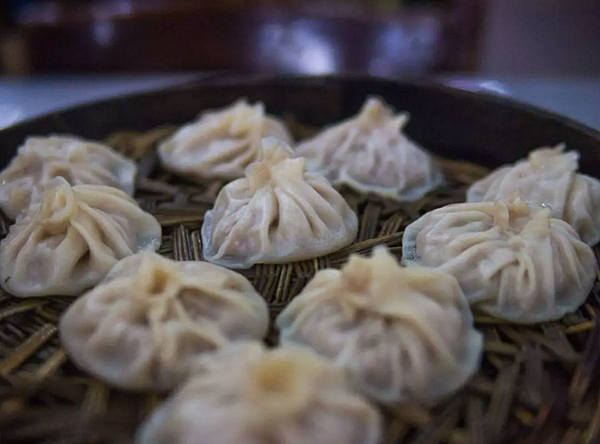
The paper-thin dough skin is filled with fresh and tender meat. [Photos/Xi'an Release]
Jia Yongxin Restaurant
The first product of Jia Yongxin – using cured beef and mutton -- is a Muslim dish that is delicately cooked with ancestral secret recipes. The ingredients are always different and the mix depends on the 24 solar terms in the traditional Chinese lunar calendar.
The beef and mutton are appealing to the eyes, nose and palate. The meat is thin, tender and fragrant and rates as a "unique delicacy" for eaters.
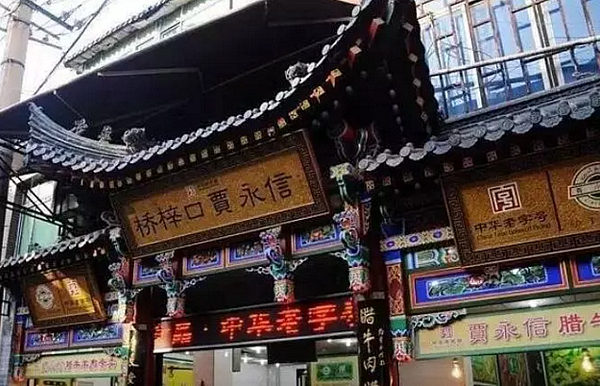
Jia Yongxin Restaurant [Photos/Xi'an Release]
Xi'an Restaurant
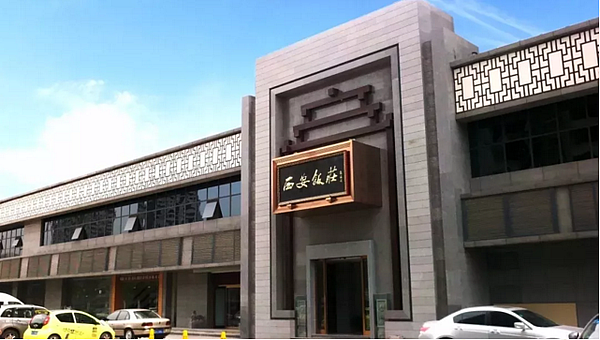
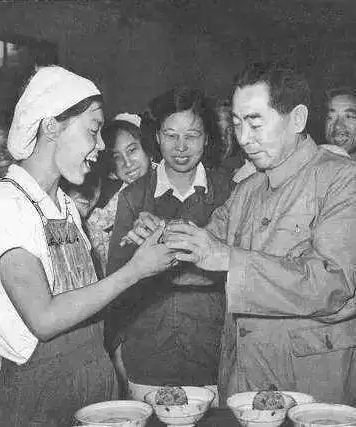
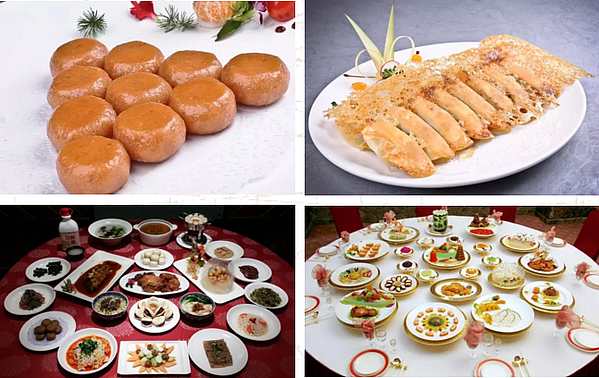
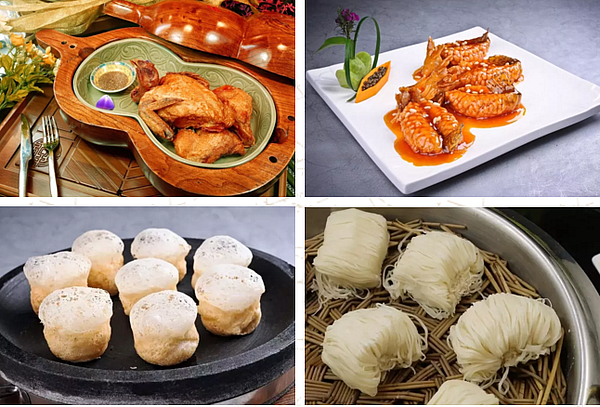
As a time-honored brand in Xi'an, the restaurant has a group of popular local dishes, such as hulu ji (gourd-shape fried chicken), milky-white fishsoup, warmly-mixed sliced pig kidneys with sliced vegetable, sanpisi (sliced pork skin, chicken skin and jellyfish skin), and guifei jichi (chicken wings seasoned with wine). These are the favorite dishes of Xi'an residents and enjoy high reputation all over the country.
The restaurant has 12 branches across the city and it developed from a high-end banquet house for celebrities to a popular restaurant affordable to the ordinary public.
Founded in 1929, it boasts a glorious history. It was invested by Feng Kechang and some local celebrities and initially called Xi'an Hotel. It was renamed Xi'an Restaurant in 1942 when it was wholly-owned by Feng.
In 1957, it became a state-owned enterprise and moved from the Sandao lane at the West Avenue to No 298 at East Avenue. The tablet of the Chinese version of Xi'an Restaurant was autographed by eminent writer Guo Moruo.
Since the restaurant rose to fame for its authentic Shaanxi flavor, it continued to offer the most typical dishes of the province, such as the Shaanxi-style snack feast and the Chang’an Bajing Feast. Other traditional dishes of Xi'an Restaurant include mushroom and peach kernel with quick-boiled pork belly and duck gizzard, crystal lotus root pie, and stewed tremella fuciformis with medlar and the top ten snacks include the thousand-layer shortcrustpastry, crispy fried noodles, bubble cake, persimmon cake, jujube paste and spring rolls stuffed withshepherd's-purse.
There are five Shaanxi-flavored banquets, including Imperial Banquet of the Prosperous Tang dynasty (618-907) and the Xifu Snack Banquet.
Lao Sun Jia Restaurant
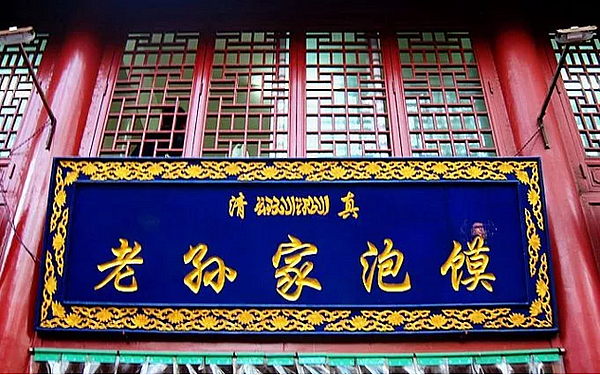
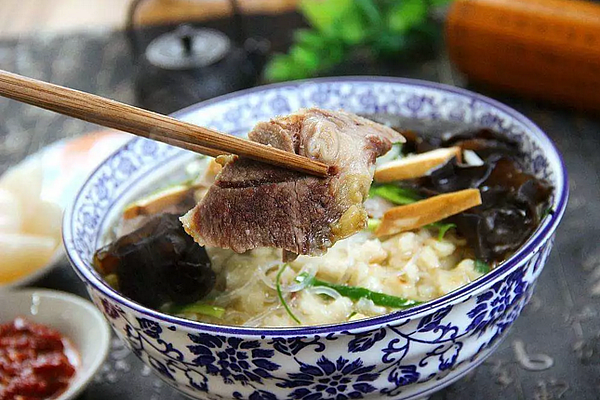
Photos/Xi'an Evening News
Lao Sun Jia restaurant, or old Sun family restaurant, enjoys high status among all the paomo (paomo ispita bread soaked in soup) restaurants in Xi'an. The rich ingredients, tasty soup, well-stewed meat and overflowing aroma of paomo in the restaurant attract countless eaters.
In recent years, Lao Sun Jia has won numerous honors, such as the Chinesetime-honoredbrand, intangible cultural heritage, and famous Chinese restaurant and so on. However, its operators and cooks value customers' recognition more than any honorable title.
Lao Sun Jia Beef and Lamb Paomo Restaurant, predecessor of today's Lao Sun Jia Restaurant was founded in 1898.
The first site was chosen in southeast corner of the crossing of Duanlyumen in East Avenue, a bustling area in downtown Xi'an. There were no more than ten employees and only two rooms, covering dozens of square meters. Due to it delicious paomo, it quickly rose to fame.
The paomo is rich in high-quality condiments and requires exquisite culinary skills. There are 16 kinds of seasoning in its secret recipe. The customerscrumbled up the pita bread and then the cook added it to the warm soup. The duration and degree of heating is essential for the dish. It makes you feel refreshed when enjoyed with spicy sauce, fresh coriander and crispy sweet garlic.
The restaurant has offered a long-term discount since 2017, enabling people to have a paomo at a price of 15.8 yuan ($2.3) before noon. It is a move to recall locals' memory of the hometown food.